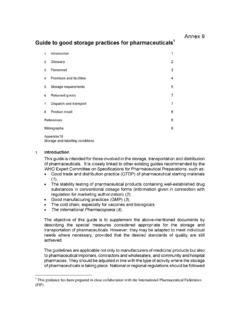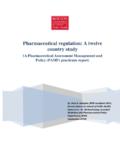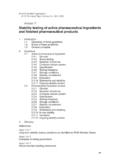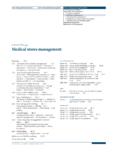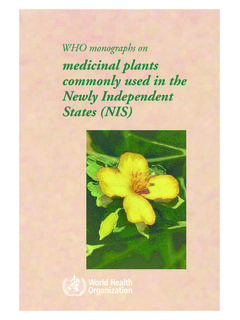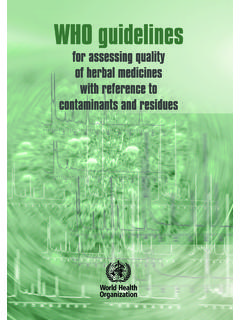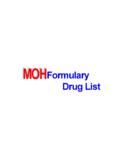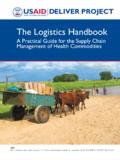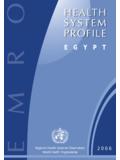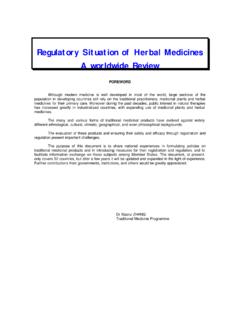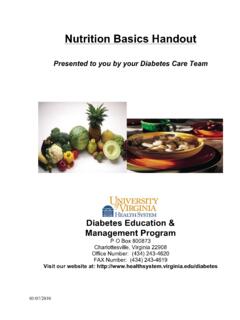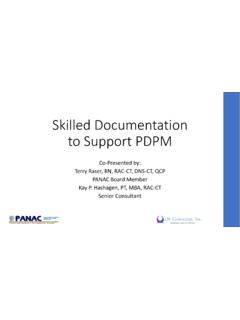Transcription of DIET, NUTRITION AND THE PREVENTION OF CHRONIC …
1 This report contains the collective views of an international group of experts and does not necessarily represent the decisions or the stated policy of the World Health Organization or of the Food and Agriculture Organization of the United Nations WHO Technical Report Series 916. diet , NUTRITION AND. THE PREVENTION OF. CHRONIC DISEASES. Report of a Joint WHO/FAO Expert Consultation World Health Organization Geneva 2003. WHO Library Cataloguing-in-Publication Data Joint WHO/FAO Expert Consultation on diet , NUTRITION and the PREVENTION of CHRONIC Diseases (2002 : Geneva, Switzerland). diet , NUTRITION and the PREVENTION of CHRONIC diseases: report of a joint WHO/FAO expert consultation, Geneva, 28 January -- 1 February 2002.
2 (WHO technical report series ; 916). disease -- epidemiology -- standards behavior metabolism activity of illness ISBN 92 4 120916 X (NLM classification: QU 145). ISSN 0512-3054. q World Health Organization 2003. All rights reserved. Publications of the World Health Organization can be obtained from Marketing and Dissemination, World Health Organization, 20 avenue Appia, 1211 Geneva 27, Switzerland (tel: +41 22. 791 2476; fax: +41 22 791 4857; e-mail: Requests for permission to reproduce or translate WHO publications --- whether for sale or for noncommercial distribution --- should be addressed to Publications, at the above address (fax: +41 22 791 4806; e-mail: The designations employed and the presentation of the material in this publication do not imply the expression of any opinion whatsoever on the part of the World Health Organization concerning the legal status of any country, territory, city or area or of its authorities, or concerning the delimitation of its frontiers or boundaries.))
3 Dotted lines on maps represent approximate border lines for which there may not yet be full agreement. The mention of specific companies or of certain manufacturers' products does not imply that they are endorsed or recommended by the World Health Organization in preference to others of a similar nature that are not mentioned. Errors and omissions excepted, the names of proprietary products are distinguished by initial capital letters. The World Health Organization does not warrant that the information contained in this publication is complete and correct and shall not be liable for any damages incurred as a result of its use.
4 This publication contains the collective views of an international group of experts and does not necessarily represent the decisions or the stated policy of the World Health Organization or of the Food and Agriculture Organization of the United Nations. Typeset and printed in Switzerland Contents 1. Introduction 1. Reference 3. 2. Background 4. The global burden of CHRONIC diseases 4. The double burden of diseases in the developing world 8. An integrated approach to diet -related and NUTRITION -related diseases 9. References 10. 3. Global and regional food consumption patterns and trends 13. Introduction 13. Developments in the availability of dietary energy 14.
5 Availability and changes in consumption of dietary fat 17. Availability and changes in consumption of animal products 20. Availability and consumption of fish 22. Availability and consumption of fruits and vegetables 23. Future trends in demand, food availability and consumption 25. Conclusions 27. References 29. 4. diet , NUTRITION and CHRONIC diseases in context 30. Introduction 30. diet , NUTRITION and the PREVENTION of CHRONIC diseases through the life course 31. Fetal development and the maternal environment 31. Infancy 32. Childhood and adolescence 34. Adulthood 38. Ageing and older people 39. Interactions between early and later factors throughout the life course 40.
6 Clustering of risk factors 41. Intergenerational effects 41. Gene--nutrient interactions and genetic susceptibility 41. Intervening throughout life 42. References 46. 5. Population nutrient intake goals for preventing diet -related CHRONIC diseases 54. Overall goals 54. Background 54. Strength of evidence 54. A summary of population nutrient intake goals 55. References 59. iii Recommendations for preventing excess weight gain and obesity 61. Background 61. Trends 61. diet , physical activity and excess weight gain and obesity 61. Strength of evidence 62. General strategies for obesity PREVENTION 67. Disease-specific recommendations 68.
7 References 70. Recommendations for preventing diabetes 72. Background 72. Trends 72. diet , physical activity and diabetes 73. Strength of evidence 73. Disease-specific recommendations 77. References 78. Recommendations for preventing cardiovascular diseases 81. Background 81. Trends 81. diet , physical activity and cardiovascular disease 81. Strength of evidence 81. Disease-specific recommendations 87. References 91. Recommendations for preventing cancer 95. Background 95. Trends 95. diet , physical activity and cancer 95. Strength of evidence 95. Disease-specific recommendations 101. References 101. Recommendations for preventing dental diseases 105.
8 Background 105. Trends 105. diet and dental disease 107. Strength of evidence 116. Disease-specific recommendations 119. References 119. Recommendations for preventing osteoporosis 129. Background 129. Trends 129. diet , physical activity and osteoporosis 129. Strength of evidence 130. Disease-specific recommendations 131. References 132. 6. Strategic directions and recommendations for policy and research 134. Introduction 134. iv Policy principles for the promotion of healthy diets and physical activity 135. Prerequisites for effective strategies 136. Leadership for effective action 136. Effective communication 137.
9 Functioning alliances and partnerships 138. Enabling environments 138. Strategic actions for promoting healthy diets and physical activity 142. Surveillance of people's diets, physical activity and related disease burden 142. Enabling people to make informed choices and take effective action 142. Making the best use of standards and legislation 142. Ensuring that healthy diet '' components are available to all 143. Achieving success through intersectoral initiatives 143. Making the best use of health services and the professionals who provide them 143. Call to action 143. Reference 144. Acknowledgements 144. Annex Summary of the strength of evidence for obesity, type 2 diabetes, cardiovascular disease (CVD), cancer, dental disease and osteoporosis 148.
10 V Joint WHO/FAO Expert Consultation on diet , NUTRITION and the PREVENTION of CHRONIC Diseases Geneva, 28 January--1 February 2002. Members Dr Amine, Dean, High Institute of Public Health, Alexandria University, Alexandria, Egypt Dr Baba, Chairperson, Department of NUTRITION and Food Sciences, American University of Beirut, Beirut, Lebanon Dr M. Belhadj, Professor of Internal Medicine and Diabetologia, Centre Hospitalier Universitaire, Oran, Algeria Dr M. Deurenberg-Yap, Director, Research and Information Management, Health Promotion Board, Singapore (Co-Rapporteur). Dr A. Djazayery, Professor of NUTRITION , Department of NUTRITION and Biochemistry, School of Public Health, Tehran University of Medical Sciences, Tehran, Islamic Republic of Iran Dr T.
